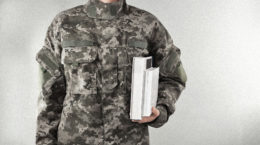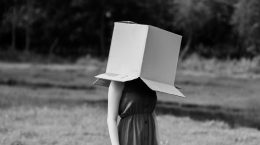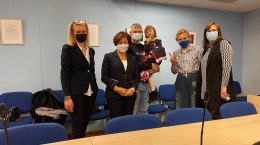Not only school but also university education in Belarus is disfigured and crippled. Even when applying, the applicant faces bureaucracy and the possibility of not getting what he promised – for example, a dormitory, because the university administration is waiting for a Tajik or Turkmen student. When checking into a hostel, first-year students spend up to eight hours in queues and are forced to travel half the city to register and get a certificate of the absence of lice and skin infections. And this is just the beginning. Then, like Dante, there are nine circles of hell before you get a diploma. We tell you how “Our House” is fighting for Belarusian universities, students and teachers.
The liquidation of unwanted students and even entire faculties began in Belarus long before 2020. In 2013, “Our House” wrote that the Yanka Kupala Grodno State University remains without a history department. They wanted to combine it with the Faculty of Sociology. Before that, in 2012, one of the authors of the book “Grodno Studies”, Andrey Chernyakevich, was dismissed from the university. The head of the Grodno Regional Executive Committee, Semyon Shapiro, said: Chernyakevich published the book abroad for private funds. “There are sixteen people at the university who are calling for the overthrow of the government,” Shapiro said. And after Andrey Chernyakevich, Igor Kuzminich, the senior lecturer of the Department of Theory of State and Law, the author of fairy tales about the white-red-white flag and the “Pahonia” coat of arms, left the university in protest against pressure on colleagues.
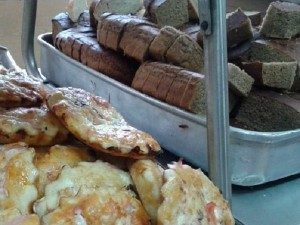 Belarus has the right to be proud that cockroaches also receive higher education in the neighbourhood of students. In 2013, an activist of “Our House” drew attention to the condition of the BSU canteen on Oktyabrskaya Street in Minsk. The activist was struck by the fact that cockroaches are walking around the inventory, bread and other food in the dining room, where the military, students, university employees eat. The activist asked the workers about the sanitary condition of the canteen, to which he heard the answer: “And what will we do?”. Later it turned out that such cases are not uncommon in the institution. However, the problem is not solved.
Belarus has the right to be proud that cockroaches also receive higher education in the neighbourhood of students. In 2013, an activist of “Our House” drew attention to the condition of the BSU canteen on Oktyabrskaya Street in Minsk. The activist was struck by the fact that cockroaches are walking around the inventory, bread and other food in the dining room, where the military, students, university employees eat. The activist asked the workers about the sanitary condition of the canteen, to which he heard the answer: “And what will we do?”. Later it turned out that such cases are not uncommon in the institution. However, the problem is not solved.
Increased attention to people travelling abroad has also existed in our country for quite a long time. In 2014, “Our House” wrote about the Brest State University, where teachers were forbidden to leave the city on all days except Sunday. Thus, they cannot go abroad (Brest is a border city) on weekdays and Saturdays, even if they have a legal weekend at work. To leave Brest, not on Sunday, the university employees had to write an application to the Ministry of Education. A trip abroad in the middle of the week is possible only like a business trip. The university teachers were outraged, although they signed the order: “The document does not specify responsibility for violating these new rules in any way. Some are going to take a day at their own expense if such a trip is necessary. It is difficult to say whether everyone has signed this document. Another thing is strange: why does the university administration need this? Who is engaged in inventing such papers when there are plenty of other problems?”.
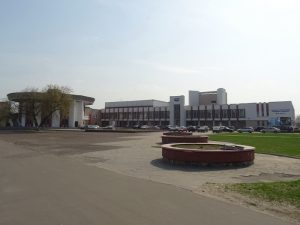 Very often, neither the territory around the university nor the infrastructure inside is accustomed to the urban. In 2016, “Our House” drew attention to the Gomel State Medical University as part of the improvement campaign. It is located near the main street, and there was not a single shop or trash can here. It turned out that the Ministry of Health should allocate money for them. Previously, there were enough benches and urns here – the space was convenient for holding mass events, seasonal fairs, Christmas trees are being installed here for the New Year. “Our House” and the administration of the Zheleznodorozhny district appealed to the rector of the Gomel Medical University Anatoly Lyzikov with a proposal to purchase and install the necessary number of small architectural forms in the form of benches and garbage bins on the territory at the entrance.
Very often, neither the territory around the university nor the infrastructure inside is accustomed to the urban. In 2016, “Our House” drew attention to the Gomel State Medical University as part of the improvement campaign. It is located near the main street, and there was not a single shop or trash can here. It turned out that the Ministry of Health should allocate money for them. Previously, there were enough benches and urns here – the space was convenient for holding mass events, seasonal fairs, Christmas trees are being installed here for the New Year. “Our House” and the administration of the Zheleznodorozhny district appealed to the rector of the Gomel Medical University Anatoly Lyzikov with a proposal to purchase and install the necessary number of small architectural forms in the form of benches and garbage bins on the territory at the entrance.
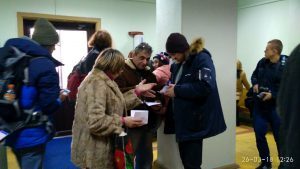 We have already talked about the problems with education in the Belarusian language. Belarusian-language schools are being closed, classes with instruction only in the Belarusian language are not available in every regional centre. On February 21, 2018, the collection of signatures for the national university with education in Belarusian began in several cities of Belarus. It resulted in mass detentions of activists. The total amount of fines, according to preliminary estimates, was 290 basic units (approximately 7,105 rubles). People got convicted for participating in an unauthorized mass event (Article 23.34 of the Administrative Code). “Our House” also wrote about this fact – repressions for collecting signatures, not prohibited by Belarusian laws, were included in the monitoring of repressions for 2018. One of the participants in the collecting signatures, Olga Mayorova, wrote a text to our website. There, she mentioned that the authorities ban state universities in Belarusian.
We have already talked about the problems with education in the Belarusian language. Belarusian-language schools are being closed, classes with instruction only in the Belarusian language are not available in every regional centre. On February 21, 2018, the collection of signatures for the national university with education in Belarusian began in several cities of Belarus. It resulted in mass detentions of activists. The total amount of fines, according to preliminary estimates, was 290 basic units (approximately 7,105 rubles). People got convicted for participating in an unauthorized mass event (Article 23.34 of the Administrative Code). “Our House” also wrote about this fact – repressions for collecting signatures, not prohibited by Belarusian laws, were included in the monitoring of repressions for 2018. One of the participants in the collecting signatures, Olga Mayorova, wrote a text to our website. There, she mentioned that the authorities ban state universities in Belarusian.
Student strikes in Belarus, although rare, have also happened – and “Our House” wrote about these facts. So, on November 11, 2019, students of the Minsk Innovation University went on strike. The reason was the desire to defend their university, which did not extend accreditation in some specialities. The Ministry of Education offered students to continue their studies at other universities, but they refused. Only fifth-year students of the speciality “transport logistics” had to go to BNTU since they were supposed to finish their studies in January 2020. By the way, the Minsk Innovation University allowed students from the colonies of Belarus to receive higher education. Our House included the student strike in the monitoring of harassment and repression for 2019.
However, most of the student activists and university workers were subjected to repression after the 2020 elections. “Our House” tried to cover the facts of persecution in detail, wrote letters to international organizations. We helped students after repression and torture. On November 1, 2020, we supported the students of Belarus and the teaching staff in their demands and aspirations to release political prisoners, stop the arbitrariness on the part of the security forces and hold new fair elections without the participation of Lukashenka.
In March 2021, we released monitoring dedicated to the repressions against students in Belarus. Here, we have listed the leading persons of “case of students”. We also gave examples of students’ beatings on the streets, police cars and pre-trial detention centres. The monitoring mentioned students who became political prisoners for participating in protest marches, posts and comments in social networks and messengers. Separately, we described cases of repression against underage students. This material was subsequently translated into English and German and distributed to international organizations. In July 2021, we separately covered the “students case” – we remembered the day of the detention of activists, told about the bullying of them in the pre-trial detention centre, described the course of court sessions, quoted the last word of each person involved.
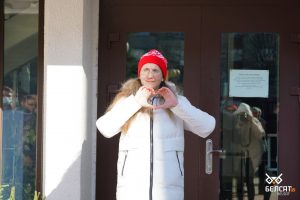 However, the repression affected not only students but also their teachers. On March, 2021, an article about the story of a brave translator Olga Kalatskaya, who slapped the state propagandist Grigory Azarenok, was published on our website. Olga taught English to applicants, conducted pairs at the Minsk State Linguistic University, where she studied herself. After the election, she repeatedly supported the protest of the MSLU students. And in the winter, she received two years of home “chemistry” for insulting Azarenka. On July 28, 2021, we released a text about repressions against scientists and university teachers. Among those listed are cases when teachers stood up for protesting students.
However, the repression affected not only students but also their teachers. On March, 2021, an article about the story of a brave translator Olga Kalatskaya, who slapped the state propagandist Grigory Azarenok, was published on our website. Olga taught English to applicants, conducted pairs at the Minsk State Linguistic University, where she studied herself. After the election, she repeatedly supported the protest of the MSLU students. And in the winter, she received two years of home “chemistry” for insulting Azarenka. On July 28, 2021, we released a text about repressions against scientists and university teachers. Among those listed are cases when teachers stood up for protesting students.
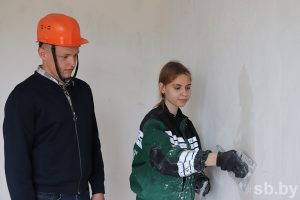 In addition to studying, university students are forced to work in student groups and skip lectures, helping agriculture. We have devoted one of our recent materials specifically to the slave labour of schoolchildren and students, which is why their right to education is violated. After all, some student groups start working before the end of the school year, and in September, students have to pick potatoes and apples in different farms instead of classes. This material continues our cycle of information about slave labour in Belarus.
In addition to studying, university students are forced to work in student groups and skip lectures, helping agriculture. We have devoted one of our recent materials specifically to the slave labour of schoolchildren and students, which is why their right to education is violated. After all, some student groups start working before the end of the school year, and in September, students have to pick potatoes and apples in different farms instead of classes. This material continues our cycle of information about slave labour in Belarus.
The activists of “Our House” have been fighting for many years to make the life of Belarusians better. We want everyone to feel like the owner of our home – Belarus. However, the state prevents this in every possible way – and students are no exception. The community, which should be the most progressive and courageous, eventually becomes the most repressed and disenfranchised. We continue to help Belarusian students and teachers. We continue to tell the world about them. And we believe that the day when our universities will be free is not far off.


